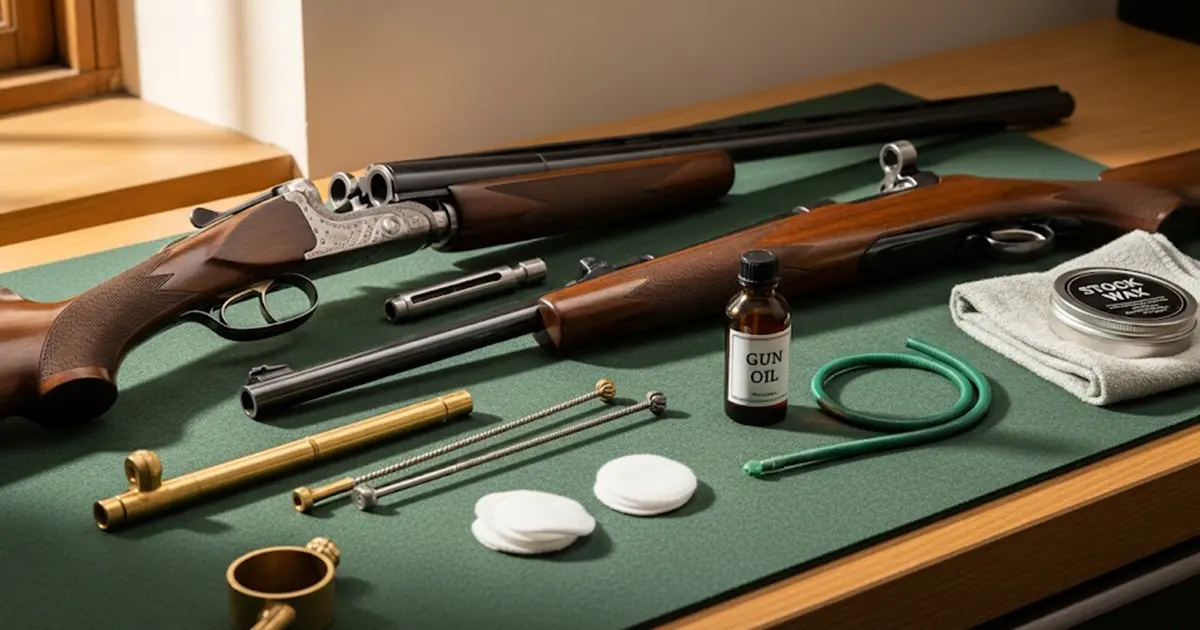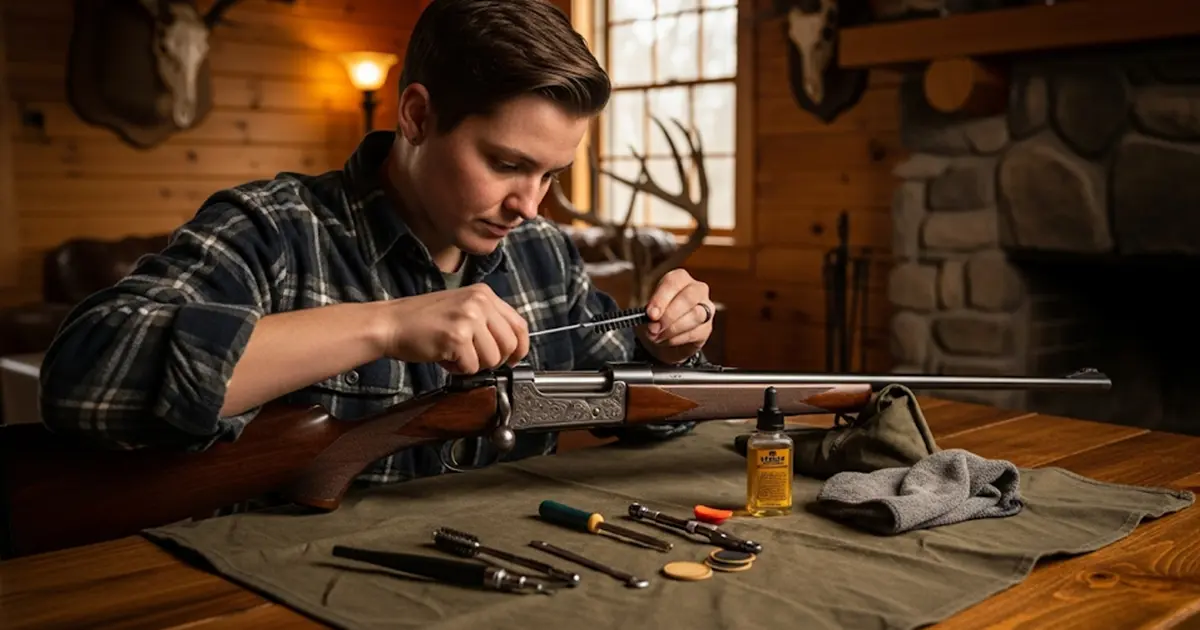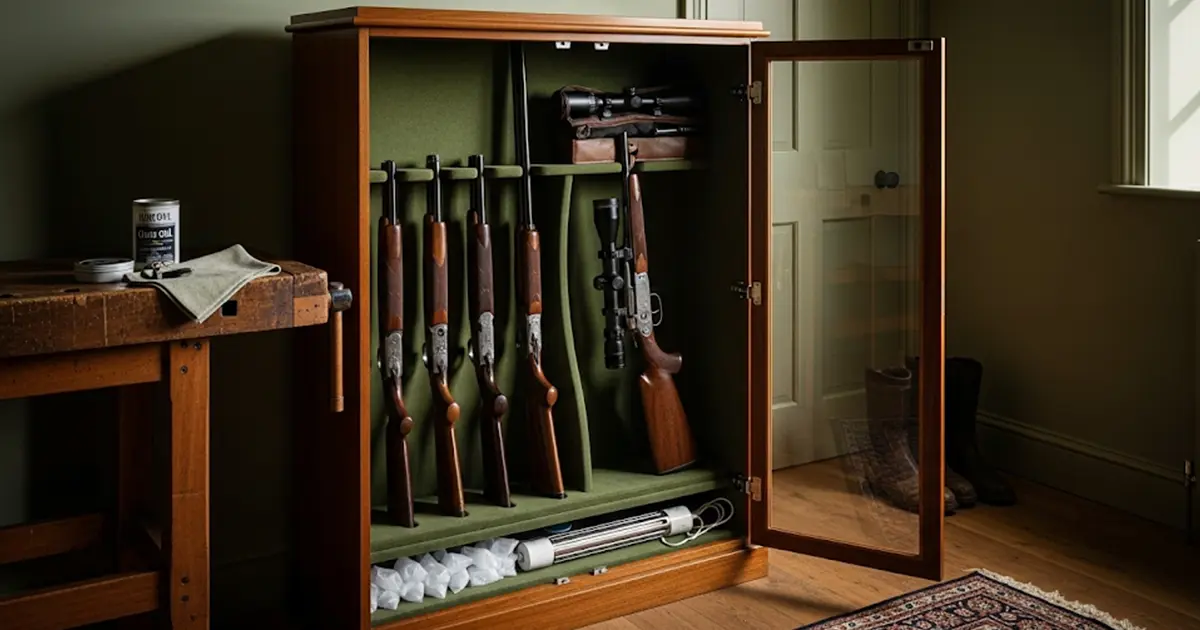Cleaning your firearm is one of the most important aspects of gun ownership, but it’s also one of the most misunderstood. Walk into any shooting club or scroll through an online forum and you’ll hear conflicting advice: clean after every shot, never use solvent on stainless barrels, drown it in oil, avoid oil altogether… it’s no wonder shooters are confused.
At The Instinctive Shooter, we’ve heard every myth going. We’ve also seen the costly results of bad cleaning habits, from pitted barrels to gummed-up actions. In this article, we separate fact from fiction, using expert knowledge, real-world experience, and proven techniques to help you keep your firearms in top condition.
Myth 1: “You Must Clean Your Gun After Every Single Use. No Exceptions”
Some shooters treat cleaning like a post-match ritual. Others barely touch their kit until accuracy drops. The truth is somewhere in between.
Expert insight:
“Over-cleaning isn’t harmful if you’re doing it correctly, but for many shooters it’s just unnecessary. The trick is cleaning at intervals that match how you actually use the firearm, not following a one-size-fits-all rule.”
— David Bellamy, Managing Director, The Instinctive Shooter
Practical guidance:
- Occasional clay shooter: A thorough clean after each outing is still best, not because you’ve fired hundreds of rounds, but because fingerprints, moisture, and powder residue can corrode metal over time.
- Regular game stalker: Check and clean more often, especially if you’ve been shooting in wet or muddy conditions.
- Competition shooter: A more frequent cleaning schedule ensures peak performance where split-second accuracy counts.
Myth 2: “Any Oil Will Do, It’s Just Lubrication”
From WD-40 to motor oil, we’ve heard it all. The wrong lubricant can break down seals, attract grit, or leave a sticky residue.
The facts:
Firearm-specific oils and greases are designed for the pressures, temperatures, and tolerances your kit operates under. Household oils simply aren’t made for it.
Pro tip:
Keep a small bottle of quality gun oil in your kit. A light coat after cleaning protects metal without attracting dust, and we mean light, like buttering toast, not drowning it.
Myth 3: “Stainless Barrels Never Rust”
Yes, stainless is more corrosion-resistant than blued steel, but “resistant” doesn’t mean “immune.” Neglect it and rust spots will still appear, particularly in damp conditions.
Example from the field:
We’ve had rifles brought in with seized threads on moderators because the owner assumed stainless meant maintenance-free. A bit of preventive cleaning and lubrication could have saved them a costly thread repair.
Myth 4: “More Oil Means More Protection”
Over-oiling is one of the quickest ways to gum up your action. Excess oil traps dust and unburnt powder, leading to sluggish cycling or even misfires.
Actionable advice:
- Use just enough oil to leave a sheen on the metal.
- Always wipe away any excess before storage.
- If storing long-term, apply a very light protective coat, then recheck every couple of months.
Myth 5: “A Bore Snake Is All You Need”
Bore snakes are brilliant for a quick field clean, but they don’t replace a proper bench clean.
Correct use:
A bore snake is ideal for removing loose fouling when you can’t strip the gun, such as between drives on a game shoot. Once home, a rod, bore guide, and patches will remove the stubborn carbon and copper deposits that affect accuracy.
Myth 6: “Breaking In” a New Barrel Means Cleaning After Every Shot for 50 Rounds
This advice dates back to older manufacturing methods. Modern barrels are produced to tighter tolerances and often don’t need such intensive break-in.
Balanced approach:
Clean after your first few shots to remove any machining residue, then settle into a sensible cleaning routine. If you’re unsure, check with the rifle manufacturer or ask our team for tailored guidance.
Storage Matters Just as Much as Cleaning
A perfectly cleaned gun can still suffer damage if stored incorrectly. Common mistakes include:
- Putting a gun away still damp from solvents or oil.
- Leaving it in a sealed foam case, which traps moisture.
- Storing without humidity control in the cabinet.
Best practice:
- Let all parts air-dry before storage.
- Use a breathable gun sock or lined rack.
- Add silica gel packs or a low-wattage heated rod to control moisture.
Products and Services That Help You Do It Right
At The Instinctive Shooter, we stock quality cleaning kits, firearm-specific oils, bore guides, and humidity control solutions for cabinets. More importantly, we offer hands-on advice, bring your rifle or shotgun in and we’ll show you how to maintain it properly, step-by-step.
Final Word
Gun cleaning doesn’t have to be complicated, but it does have to be correct. By cutting through the myths and focusing on proven methods, you’ll extend the life of your firearm, improve performance, and avoid costly repairs.
Whether you’re an occasional clay shooter or a seasoned stalker, our team is here to make sure your kit stays in top condition.
Practical Cleaning Checklist
- Wipe down metal parts after every outing.
- Use firearm-specific oil and the correct cleaning tools.
- Don’t over-oil, apply a light coat only.
- Store in a controlled-humidity environment.
- Schedule deep cleans based on use and conditions.
Straight Shooting Answers to Common Gun Cleaning Questions
How Often Should I Clean My Gun If I Only Shoot Occasionally?
Even if you only fire a few rounds a year, it’s wise to clean after each use and before long-term storage. Fingerprints, moisture, and residue can still cause corrosion over time.
Can I Damage My Gun by Cleaning It Too Often?
Not if you use the correct tools and methods. The real risk comes from excessive force, harsh chemicals, or cleaning from the muzzle without a bore guide.
Is Stainless Steel Really Maintenance-Free?
No. Stainless is more corrosion-resistant than blued steel, but it can still rust if neglected. Regular cleaning and light oiling remain essential.
Are Bore Snakes a Replacement for a Full Clean?
A bore snake is great for quick field maintenance, but it won’t remove stubborn fouling. Always follow up with a full bench clean when you get home.
Can I Use WD-40 or Other Household Oils Instead of Gun Oil?
It’s best to stick to oils designed for firearms. Household products may attract dust, degrade seals, or leave residues that affect performance.
Should I Remove My Scope When Cleaning My Rifle?
Not every time, but for long-term storage or deep cleaning it can help prevent moisture build-up under mounts. Store the scope in a dry, padded case.
What’s the Biggest Cleaning Mistake to Avoid?
Over-oiling. A light, even coat is all that’s needed. Too much oil can trap dirt and cause more problems than it prevents.




